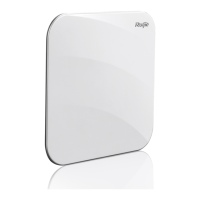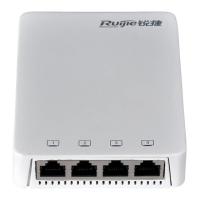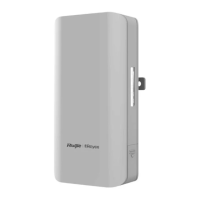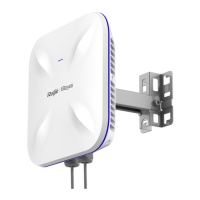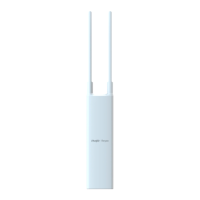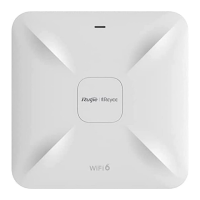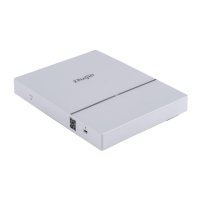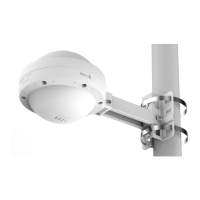Command Reference DHCP Commands
Usage Guide
There are four types of the NetBIOS nodes of the Microsoft DHCP client: 1) Broadcast, which carries
out the NetBIOS name resolution by the broadcast method, 2) Peer-to-peer, which directly requests
the WINS server to carry out the NetBIOS name resolution, 3) Mixed, which requests the name
resolution by the broadcast method firstly, and then carry out the name resolution by the WINS server
connection, 4) Hybrid, which requests the WINS server to carry out the NetBIOS name resolution
firstly, and it will carry out the NetBIOS name resolution by the broadcast method if the response is
not received.
By default, the node type for Microsoft operating system is broadcast or hybrid. If the WINS server is
not configured, broadcast node is used. Otherwise, hybrid node is used. It is recommended to set the
type of the NetBIOS node to Hybrid.
Configuration
Examples
The following example sets the NetBIOS node of Microsoft DHCP client as Hybrid.
Ruijie(dhcp-config)# netbios-node-type h-node
Command Description Related
Commands
ip dhcp pool
Defines the name of DHCP address pool and enter
DHCP address pool configuration mode.
netbios-name-server
Configures the WINS name server of the Microsoft
DHCP client NETBIOS.
Platform
Description
N/A
network (DHCP)
Use this command to define the network number and network mask of the DHCP address pool. Use
the no form of this command to delete the definition.
network net-number net-mask
no network
Parameter Description
net-number
Network number of the DHCP address pool
Parameter
Description
net-mask
Network mask of the DHCP address pool. If the
network mask is not defined, the natural network
mask will be used by default.
Defaults
No network number or network mask is defined by default.
Command
Mode
DHCP address pool configuration mode
Usage Guide
This command defines the subnet and subnet mask of a DHCP address pool, and provides the
DHCP server with an address space which can be assigned to the clients. Unless excluded
addresses are configured, all the addresses of the DHCP address pool can be assigned to the
